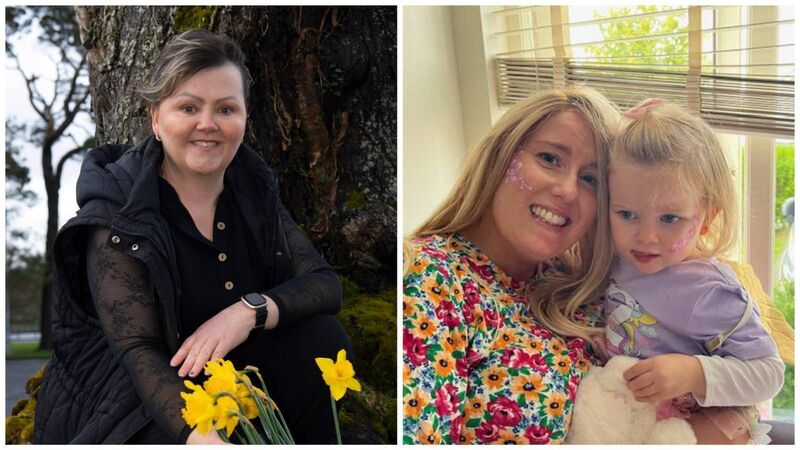'It’s taught me to cherish life': Two breast cancer patients share stories of support on Daffodil Day

Jacqui Tangney, left, and Lynn Marie Cowin with her two-year-old daughter Evie.
Try from €1.50 / week
SUBSCRIBE
Jacqui Tangney, left, and Lynn Marie Cowin with her two-year-old daughter Evie.
Today is Daffodil Day, the Irish Cancer Society’s annual fundraising drive to support breakthrough research and vital free services, including counselling, night nurse care, transport to and from cancer treatment centres, and phone and online support.
Devastating news
Already a subscriber? Sign in
You have reached your article limit.
Annual €130 €80
Best value
Monthly €12€6 / month
Introductory offers for new customers. Annual billed once for first year. Renews at €130. Monthly initial discount (first 3 months) billed monthly, then €12 a month. Ts&Cs apply.
CONNECT WITH US TODAY
Be the first to know the latest news and updates
Newsletter
The best food, health, entertainment and lifestyle content from the Irish Examiner, direct to your inbox.
Newsletter
The best food, health, entertainment and lifestyle content from the Irish Examiner, direct to your inbox.

Our team of experts are on hand to offer advice and answer your questions here
© Examiner Echo Group Limited